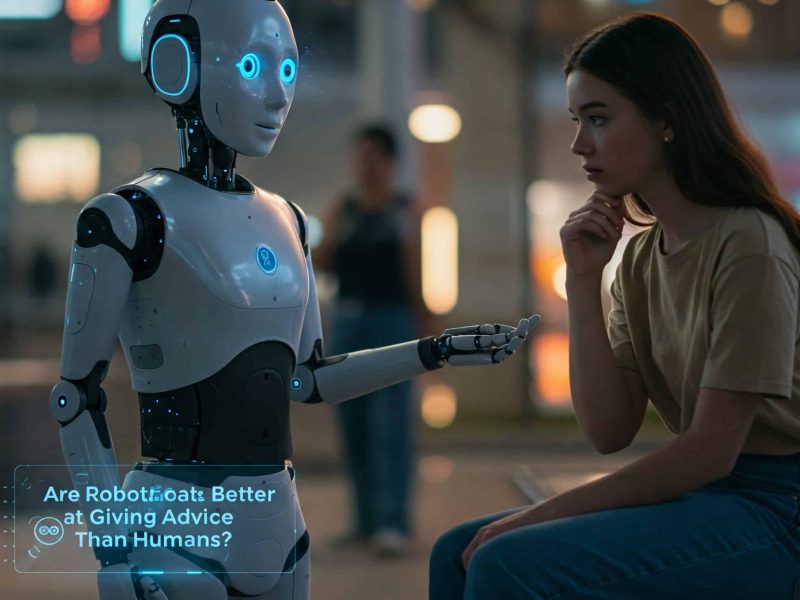AI Life Coaches: Are Robots Better at Giving Advice Than Humans in 2025?
Let’s face it: life in 2025 is complicated. Between dodging climate chaos, navigating remote work Zoom politics, and wondering whether that text from your ex was really “just to check in,” we could all use a little guidance. Enter: the AI life coach. No judgment, no awkward silences, no $200/hour invoice — just cold, calculated, silicon-based self-help. But is it… actually better than a real person?
The Rise of Robo-Coaches
Back in the day (you know, like 2021), life coaching was the domain of charismatic humans with vision boards and Tony Robbins playlists. Fast forward to 2025, and everyone from Google to your grandma is training an AI to help you get your act together.
Today’s AI coaches aren’t just glorified chatbots — they analyze your calendar, scan your tone of voice, and detect the emotional undertones in your Spotify playlist. One coach even asked if I was okay because I played Billie Eilish for 4 hours straight. Creepy? Yes. Accurate? Also yes.
What Can an AI Life Coach Do?
- Track your habits better than you track your steps.
- Analyze sleep, mood, diet, screen time, and Twitter meltdowns.
- Offer motivational quotes at just the wrong — or perfectly right — moment.
- Help you navigate breakups, job changes, or your quarter-life crisis #3.
- Schedule your therapy, meditation, gym, journaling, AND hydration. It even guilt-trips you if you skip yoga.
And with deep learning models trained on everything from Aristotle to Reddit, some of them offer advice so weirdly insightful it makes your therapist look like a Magic 8 Ball.
But Can They *Really* Understand Us?
This is where it gets murky. Sure, AI can simulate empathy. It can say “That sounds really hard” in a soothing digital voice. But does it know what it’s like to cry in the car after a passive-aggressive Slack message? Probably not. And let’s not forget — your AI coach isn’t going to hug you. Or remind you to stop doom-scrolling at 2 AM… unless you configure that notification, of course.
Still, a lot of people report genuine breakthroughs with their AI assistants. One user claimed their AI life coach helped them quit smoking, write a novel, and get over their ex — all in 3 months. Others say it just sent them daily motivational GIFs featuring cats. Honestly, not mad at either outcome.
The Human Touch: Still Necessary?
Absolutely. The best results often come from a hybrid approach — AI tracks your behavior and holds you accountable, while human coaches provide the nuance, empathy, and real-world experience that no algorithm can quite match. Think of AI as your overly honest best friend who’s good at spreadsheets, while your human coach is the wise aunt who tells you when you’re being a drama queen.
The Verdict: Should You Get an AI Life Coach?
If you’re curious, go for it. They’re cheaper than therapy, always available, and surprisingly helpful (especially for introverts who’d rather ask ChatGPT than talk to a real person). But remember: even the smartest robot still lacks the messy magic of human connection.
Bonus: Hilarious Things My AI Coach Said This Week
- “Based on your browsing history, you are either deeply curious or severely procrastinating.”
- “You’ve skipped your goals three days in a row. Would you like to lower your standards?”
- “Motivational quote: You don’t have to be great to start, but you do have to start before Netflix loads.”
In conclusion: AI life coaches in 2025 are useful, funny, weirdly intuitive, and occasionally savage. Just don’t expect them to cry with you… unless you install the “empathy simulation module.” 🤖❤️


